Previous editions
Fourth edition
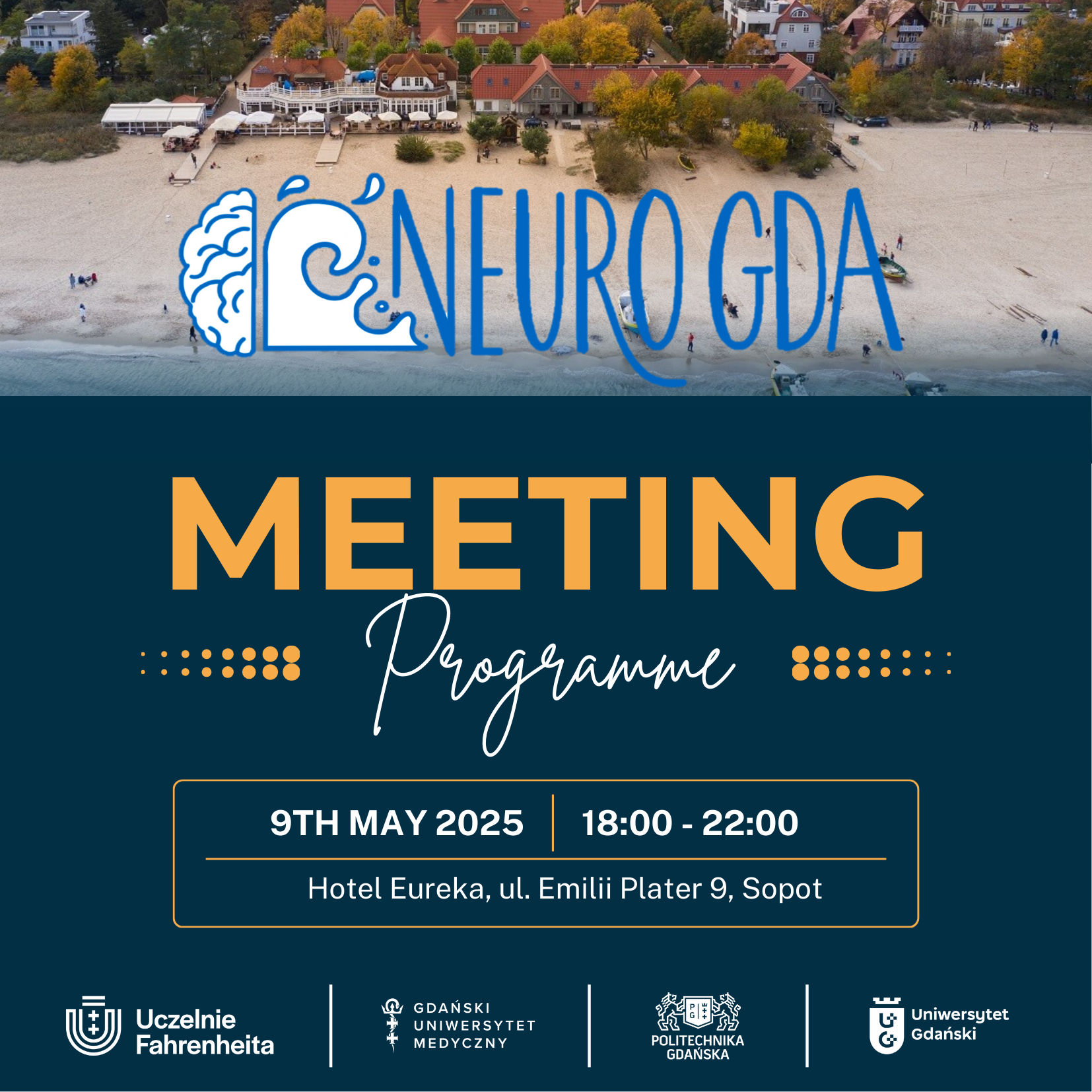
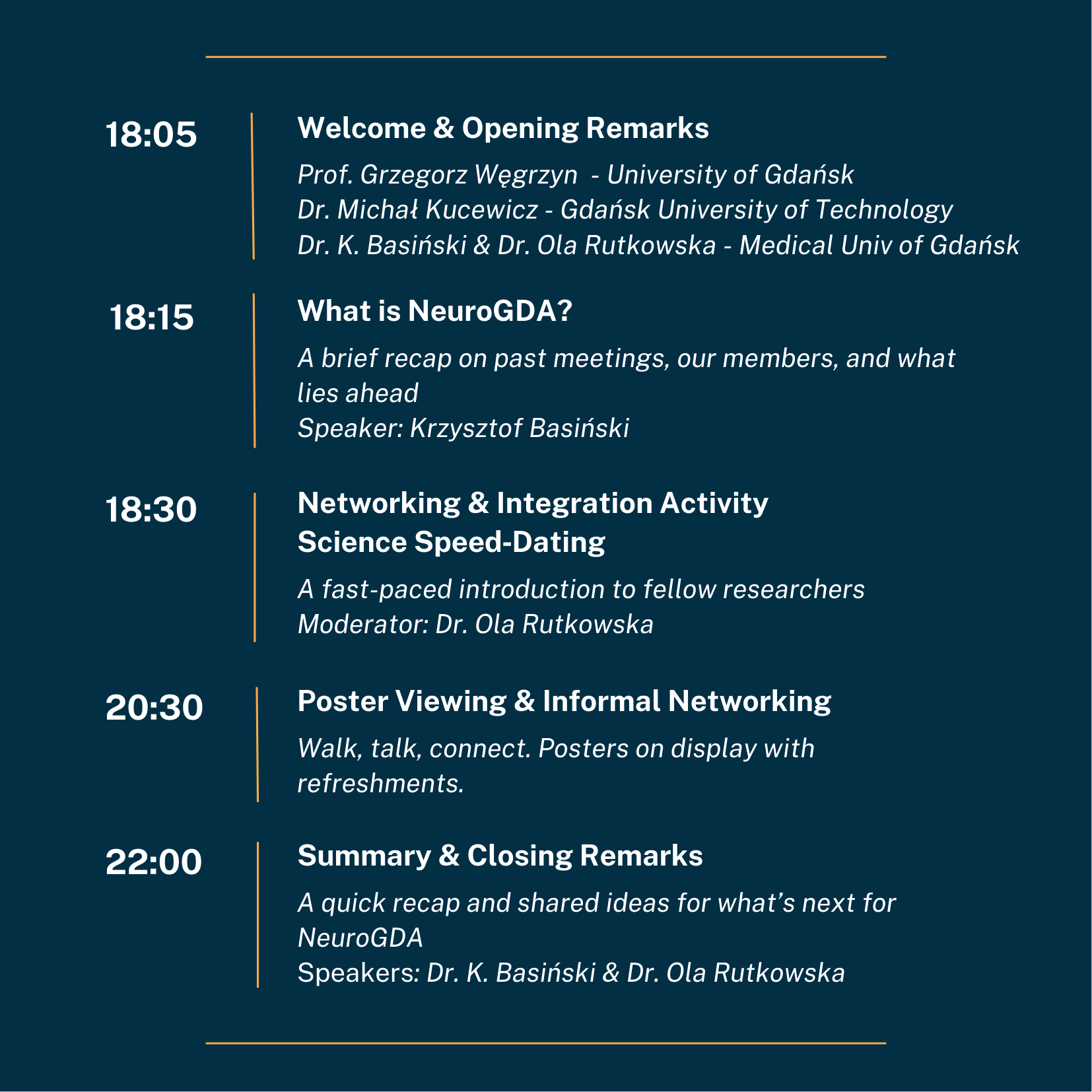
Third edition
April 14th 2025, 14:30, Room 2/DD/03, Centrum Medycyny Inwazyjnej (CMI), Uniwersyteckie Centrum Kliniczne, Smoluchowskiego 17
- Natalia Mańkowska, Paweł Winklewski (Medical University of Gdańsk) - “Flickering light: from diving and hyperbaric medicine to the metaverse”
- David R. Quiroga Martinez (University of Copenhagen) - “The neuronal dynamics of cognition: Insights from music, imagination and invasive brain recordings”

David Quiroga Martinez is a neuroscientist studying auditory working memory and imagination. He tries to understand how our brains can mentally hold and manipulate sounds, giving rise to our remarkable mind’s ear. He uses a combination of invasive (intracranial EEG) and non-invasive (M/EEG) techniques to register the activity of the brain while people listen and imagine musical sound sequences. His hope is that these recordings will give us valuable clues about the neural mechanisms that allow auditory imagination, potentially leading to a better understanding of abnormal imagery in psychiatric disorders and applications in brain-computer interfaces. After a few years as a postdoc at UC Berkeley, he started a cognitive intracranial EEG research program at University of Copenhagen.
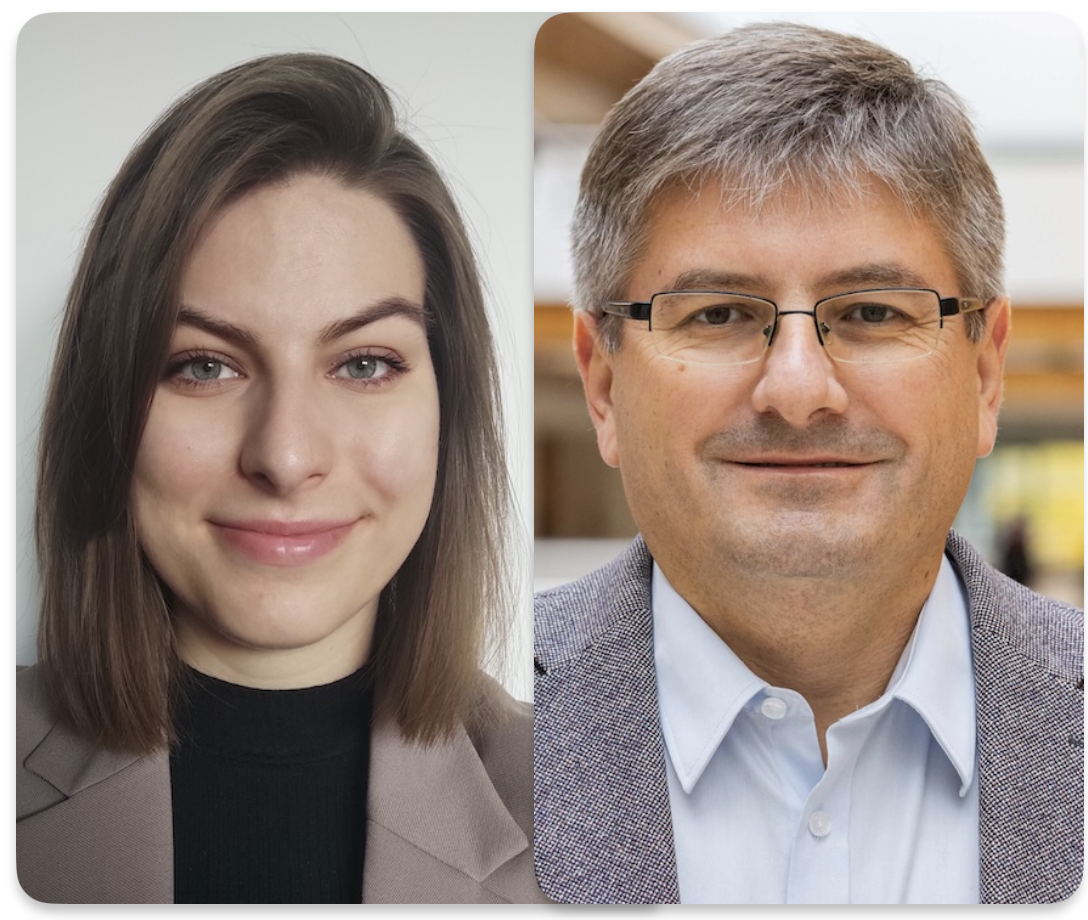
Paweł Winklewski, MD, PhD, Prof, is the Head of the Department of Neurophysiology, Neuropsychology and Neuroinformatics at the MUG. His greatest achievement to date has been building an ambitious and interdisciplinary team at the forefront of neuroscience. Natalia Mańkowska, M.A., is a psychologist working at the Department of Neurophysiology, Neuropsychology and Neuroinformatics at the MUG. Her research focuses on flickering light as a new stimulus that has recently appeared in human evolution. She investigates how it is connected to our thinking and behavior, while also looking into how the brain processes this light.
Second edition
March 19th 2025, 14:30 - 15:30, Room 2/DD/03, Centrum Medycyny Inwazyjnej (CMI), Uniwersyteckie Centrum Kliniczne, Smoluchowskiego 17
- Grzegorz Węgrzyn - “Autophagy stimulation as a potential method for treatment of neurodegeneration diseases”
- Krzysztof Pietruczuk - “Psychoneuroimmunology and neuroinformatics in studying mood disorders: from inflammation to neurophysiological modelling”
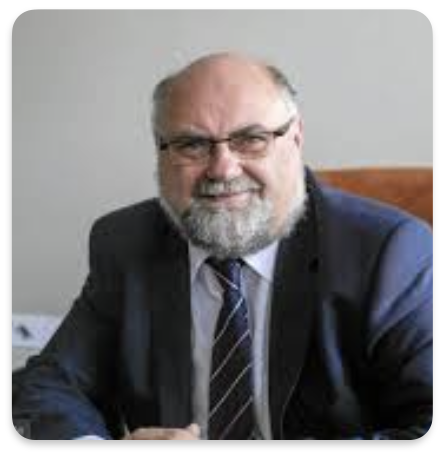
Grzegorz Węgrzyn is a professor of biological sciences, Corresponding member of Polish Academy of Sciences, and Polish Academy of Learning, Deputy President of the Council for Scientific Excellence. Research in genetics and molecular biology. Author of over 500 scientific publications, cited in the literature over 13,000 times. Supervisor of 62 doctoral theses. Winner of national and international scientific awards.
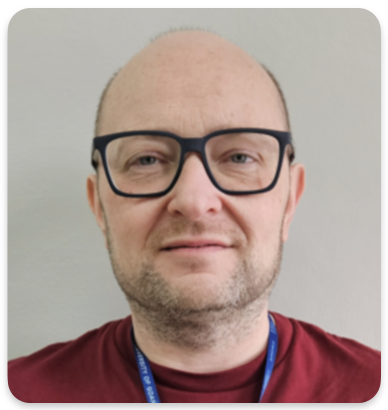
Krzysztof Pietruczuk is a researcher combining neuroscience, immunology and mathematical modelling in the context of mood disorders and neurodegenerative diseases. His work focuses on the influence of the immune system on the pathogenesis of depression and bipolar affective disorder, with a particular focus on mechanisms of drug resistance and delayed effects of antidepressants. He is currently directing the newly established Laboratory of Psychoneuroimmunology and Neuroinformatics.
First edition
February 5th 2025, 14:30 - 15:30, Room 2/DD/03, Centrum Medycyny Inwazyjnej (CMI), Uniwersyteckie Centrum Kliniczne, Smoluchowskiego 17
- Introduction by the organisers
- Lab presentation – Michał Kucewicz, Brain and Mind Electrophysiology Laboratory, Gdańsk Tech
- Informal discussion
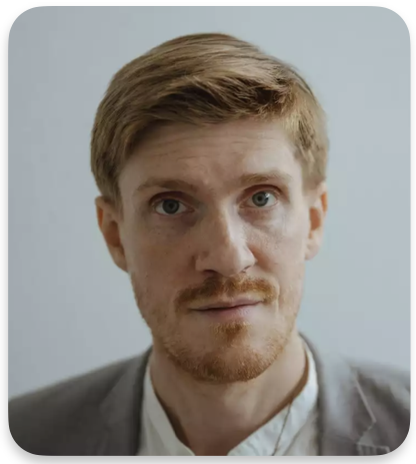
Michal Kucewicz is the founder of the Brain & Mind Electrophysiology (BME) lab at the BioTechMed Center of the Gdansk University of Technology in Poland. BME lab focuses on studying the brain activities underlying memory and higher cognitive functions with technologies for intracranial multi-electrode recordings and stimulation mainly in epilepsy patients. The goal of this research is to discover the electrophysiological substrates of engrams and the human mind to develop neuromodulation therapies for restoring these in epilepsy, dementias, psychiatric and other brain diseases.